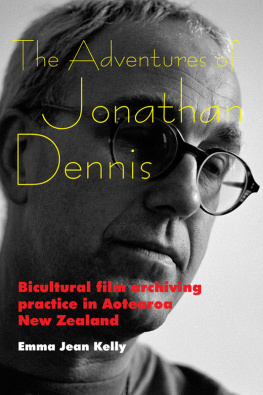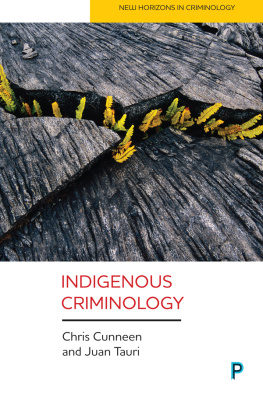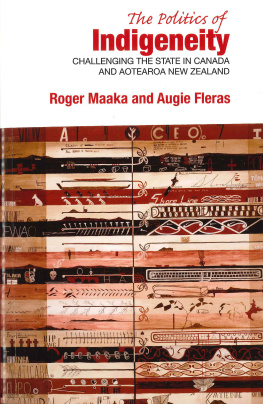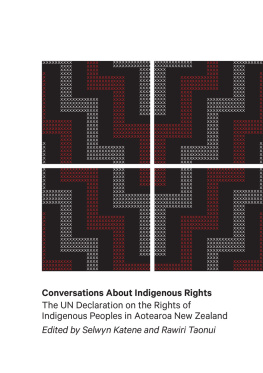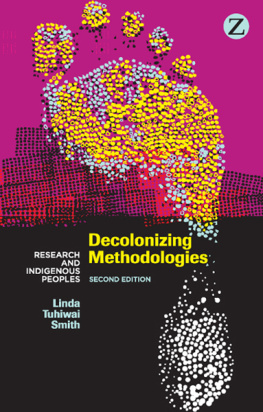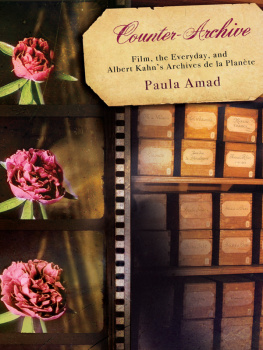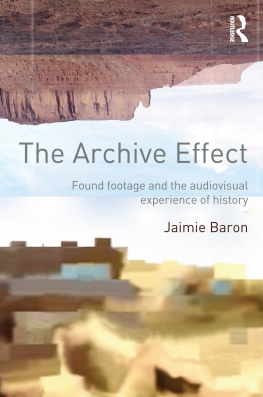Table of Contents
For Jay
Jonathan was a friend of Le Giornate del Cinema Muto. The festival has contributed to the publication of this book in his memory.
British Library Cataloguing in Publication Data
The Adventures of Jonathan Dennis
Bicultural film archiving practice in Aotearoa New Zealand
A catalogue entry for this book is available from the British Library
ISBN: 9780 86196 722 3 (Paperback edition)
Cover photograph: Gareth Watkins
The author has asserted her rights to be identified as the author of this work in accordance
with the Copyright, Designs and Patents Act 1988
Ebook edition ISBN: 9780-86196-912-8
Ebook edition published by
John Libbey Publishing Ltd, 3 Leicester Road, New Barnet, Herts EN5 5EW, United Kingdom
e-mail:
Printed and electronic book orders (Worldwide): Indiana University Press,
Herman B Wells Library 350, 1320E. 10th St., Bloomington, IN 47405, USA www.iupress.indiana.edu
2016 Copyright John Libbey Publishing Ltd. All rights reserved.
Unauthorised duplication contravenes applicable laws.
Contents
Acknowledgements
T his book emerged from my PhD thesis and has involved the support of many people including University of Auckland staff Laurence Simmons and Annie Goldson who started me on my way in 2009, and Sue Abel who then stepped in to provide advice on the bicultural aspects of the research. While at University of Auckland I received a grant for archival research. I also received a Ministry of Foreign Affairs and Trade Archive Grant to access the Archives NZ film materials not available through the NZFA. The Jonathan Dennis Trust Fund granted me travel funds for a research trip. When I moved to Auckland University of Technology in 2010 for my employment, Sue Abel was kind enough to continue her support for my thesis. Sue has been a superb secondary supervisor: Kia ora Sue. Lorna Piatti-Farnell has been my equally superb primary supervisor. Others to thank are the interviewees who were so generous with their time. Special thanks to Simon Dennis who introduced me to many of my interviewees and with her daughter Kirsten helped me negotiate access to NZFA materials. Roger Horrocks is often cited as an important mentor to film studies students for very good reason he generously corresponded with me over the life of the project, providing information and ideas throughout. Helen Martins histories of NZ film and TV have been hugely useful and she has also discussed ideas with me for the duration of the project. Bill Gosden and Malcolm McKinnon were extremely helpful. Ferry Hendriks was such a kind host and interviewee, as were Fergus MacGillivray and his husband during my visit to London. Sef Townsend and Elaine Burrows were delightful interviewees to meet so far from home. Annie Collins hosted me and is the wisest of women; Elizabeth Alley is perhaps her only equal. Annie, your questions at a particularly important moment have been taken to heart and will always be remembered. Peter Wells was an excellent source of information and thoughtful ideas, along with Bridget Ikin, John Maynard and Gareth Watkins. Genevieve Morris and Mary Righton were my cheerleaders along with Sam Jones, Liana de Jong and Alison Kirkness. Susan Potters intelligent work is an inspiration and her friendship a delight. The NZFA staff who helped me through years of visits were Owen Mann, Tania Strauss, Kiri Griffin, Siobhan Garrett, Sarah Davy, Diane Pivac and Jane Paul. Thank you for your generous help and intelligent support your work is not easy. Geraldene Peters, Tui OSullivan and Ella Henry have provided support along the way. The Harris family have also been helpful to me, and reminded me to be always cautious and humble. The JWT (Just Women Talk) breakfast club has been wonderful. Lynne Giddings and Kate Prebble have been vital feminist intellectual companions and mentors. The posse of the Foucault discussion group led by Joanna Fadyl has been very important. Engaging with academics outside my own discipline to try and understand Foucault has been enlightening. Thanks to the AUT Research Office who have kept us solvent through my employment there, and particularly to Richard Bedford and Filomena Davies for supporting me through a month long residency at the National Film and Sound Archive Australia (NFSA) at Canberra which was instrumental to my data collection. NFSA Staff were great Graham Shirley has continued to help me since I first met him there in 2011, as has Jenni Gall. Meg Labrum allowed me to interview her, and Christine Guster ensured that interview is archived at the NFSA. Ray and Sue Edmondson have also been generous with their time, knowledge and contacts. Thanks also to David Parker and Suzanne Hardy for their work. My Kelly and Hollows family have always encouraged me in my studies even when they have been bemused by them. I particularly thank my father John who is my hero, finding interest in the everyday and inspiring creativity and love in all who meet him. My other hero is my partner Jay Hollows who dug me out of intellectual and emotional ditches, made me coffee and inspired me with his tenacity, endless creativity and intelligence throughout his own studies as well as mine. Thank you to Professor Judith Pringle who provided a room of ones own for me and also reminded me that academics are humans too. Thanks to Jeremy Sherlock (Tainui, Ngti Apa) for final macron checking any further errors are my own. Finally, thank you to the family and friends of Jonathan Spencer Dennis who have been hugely generous in allowing a stranger to poke and prod into the life of your loved one. There were many tears, some of which were mine as well as yours.
This is dedicated to Jonathan Mane-Wheoki and Paul Bushnell, and to Sam Prebble and Emily Cater.
Glossary of terms
Unless otherwise stated all definitions by P.M. Ryan, The Reed Dictionary of Mori Language, 1995, Auckland, New Zealand, Reed Publishing.
Aotearoa New Zealand since the 1980s the typical nomenclature for the country (Pollock, 2005 p.550) generally shortened to NZ throughout the book for the sake of brevity. Aotearoa is often translated to Land of the Long White Cloud by association with various legends. New Zealand is the name given the land by Dutch explorer Abel Tasman in 1642.
Hap sub-tribe, clan
Iwi tribe
Kaumtua old man, elder
Kaupapa strategy, theme, philosophy
Kaitiaki guardian
Kuia old lady, (e kui, form of address), matron
Mana integrity, charisma, prestige
Mori ordinary, native people, (the indigenous peoples of Aotearoa New Zealand).
Marae meeting area of whnau or iwi, focal point of settlement, central area of village and its buildings
Mihi greet, admire, respect, congratulate
NZFANew Zealand Film Archive Ng Kaitiaki o ng Taonga Whitihua (Guardians of the Treasured Images of Light). Since August 2014 the institution is called Ng Taonga Sound & Vision to acknowledge the acquisition into the collection of the Television NZ Archive and Sound Archives from Radio NZ.

